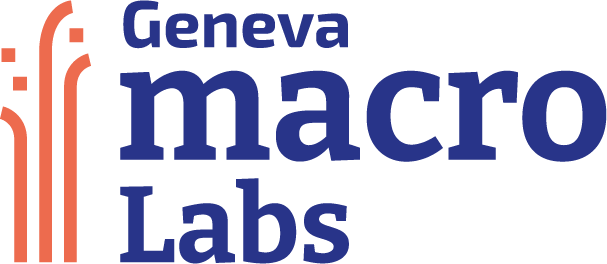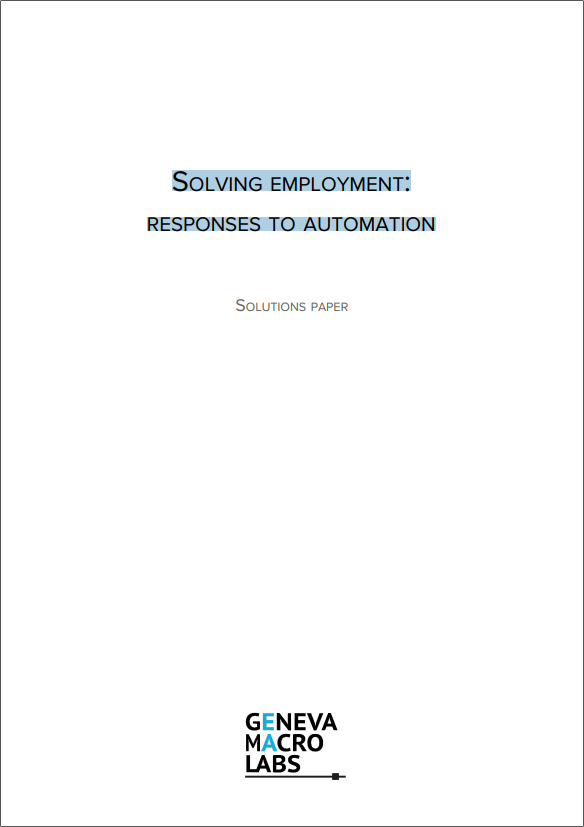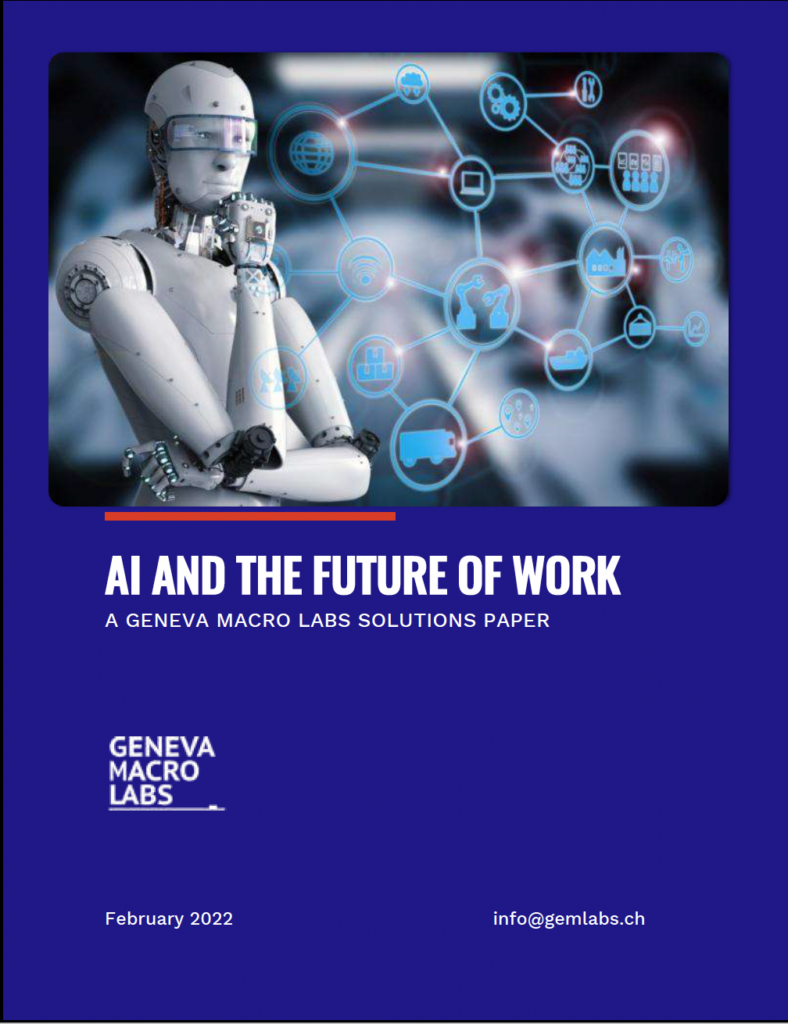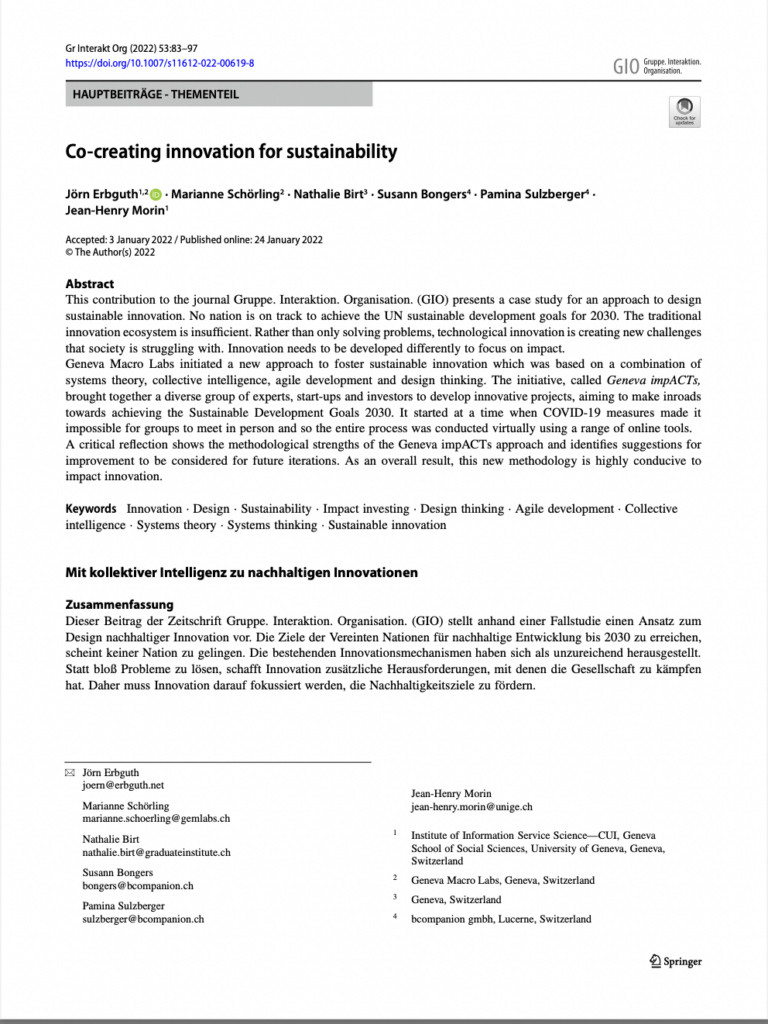In the past, automation and mechanisation mostly affected the manufacturing sector – for instance robots painting cars and machines canning foods. On the one hand, machines boosted productivity and relieved workers from many tedious and sometimes dangerous tasks. On the other hand, they contributed to the hollowing out of manufacturing employment. New advances in automation are now set to bring major changes to almost all professions, including service sectors. Improvements in AI and falls in computing and storage costs mean that many tasks performed by accountants, lawyers, medical doctors and other high-skilled occupations will be taken over by computers1. A recent McKinsey study suggested up to 800m jobs globally could be lost to automation by 20302 (against a global workforce total of around 3.5bn in 2017).
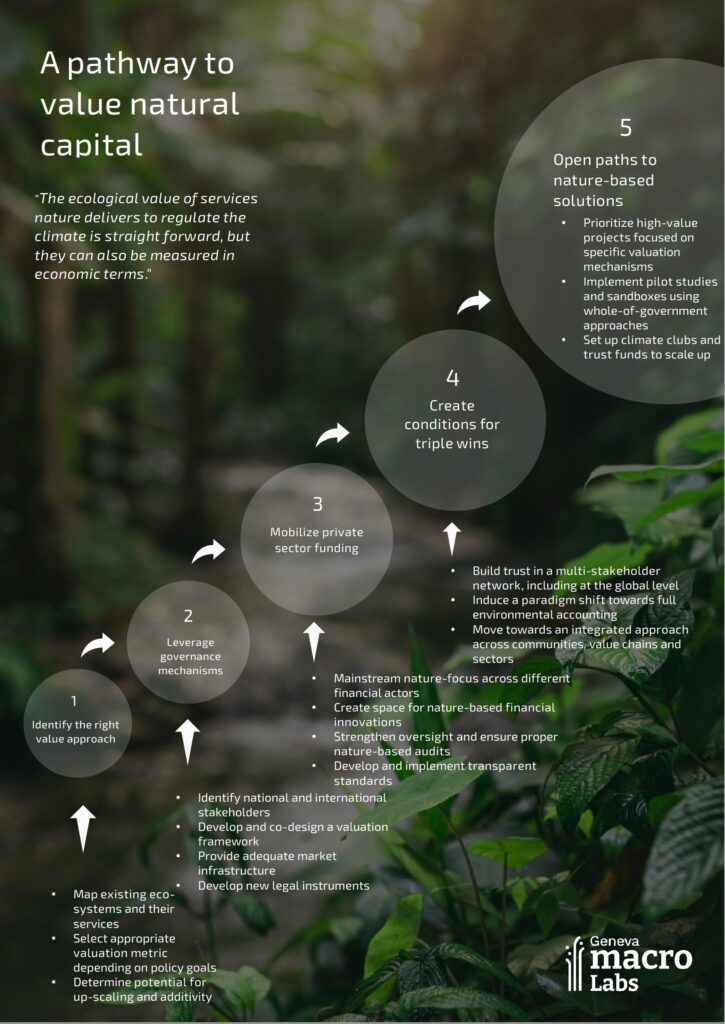
Valuing Natural Capital
Setting the stage for nature-based solutions, this Solutions Paper presents the different issues and solutions that had been discussed during an event organised by the Geneva Macro Labs in September 2022. It provides an overview of various governance mechanisms to protect ecosystems, describing their mechanisms, effectiveness, and shortfalls in protecting the underlying natural asset, whether an individual (keystone) species or an entire ecosystem. It also discusses the potential of current governance mechanisms to support economic livelihoods for populations living with or in close vicinity to the ecosystem in question.

